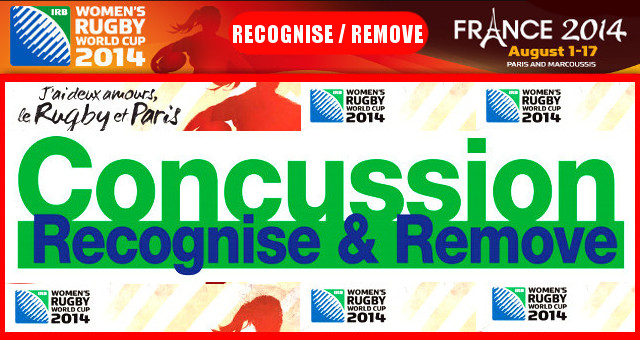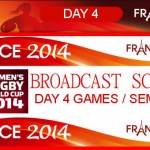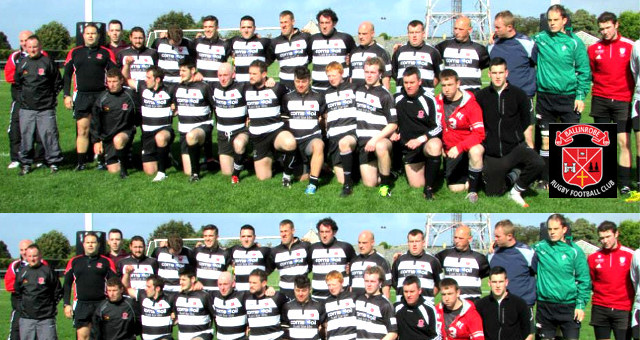 World’s Top Women Players Recognise and Remove with Mandatory Concussion Education World’s Top Women Players Recognise and Remove with Mandatory Concussion Education |
More than 350 players, coaches and match officials participating at the record-breaking Women’s Rugby World Cup 2014 in France have been given concussion education as the Rugby community is told to #Recognise&Remove.
Education is at the centre of the IRB’s commitment to protecting players at all levels of the Game and for the class of 2014 the programme is in addition to mandatory anti-doping and integrity education undertaken by the world’s top female players.
IRB Chairman Bernard Lapasset said: “The world’s top female players are superb ambassadors for Rugby and for Women’s sport and they are role models to millions of players and fans around the world.”
“Education underpins our mission to change culture and the IRB’s message to Rugby players at all levels is simple – concussion is serious and players, coaches, medics and parents have a duty to recognise the symptoms of concussion and permanently remove any player displaying them. If in doubt, sit them out.”
“We are delighted by the way that all the teams have embraced our campaign and are championing the #Recognise&Remove message.”
Ireland captain Fiona Coghlan said: “Concussion education is very important, and while the IRFU had already advised us of the importance of recognising concussion it was extremely beneficial to undertake this IRB programme in advance of the Women’s Rugby World Cup. The main message we got from it is to know the symptoms, and recognise and remove. It’s important for us and is something that everyone involved in the Game should know about.”
Canada captain Kelly Russell said: “Concussion is an important topic for all players at all levels and it is great to have completed the IRB’s Recognise and Remove education course before Women’s Rugby World Cup 2014 to recognise the symptoms and reinforce the zero-tolerance message to protect players.”
Education sits at the top of the IRB and its Unions commitment to changing culture when it comes to taking concussion seriously at all levels of the Game. The Women’s Rugby World Cup education supplements education programmes delivered by individual Unions on an on-going basis.
CLICK HERE TO VIEW THE PUBLIC EDUCATION RESOURCE >>
VISIT THE WWW.IRBPLAYERWELFARE.COM WEBSITE HERE >>
Research-based advances in on-field assessment of head injuries and graduated return to play protocols are benefiting the elite game, while at community level promotion of correct playing techniques and longer rest periods for youths is also supporting players. All of this is underpinned by research and guidance by a panel of field-leading independent experts.
Rugby Concussion Education Programme: Recognise and Remove
- Concussion education module for Union match day medical staff
- Concussion education delivered to 119 Unions at IRB General Assembly
- Mandatory concussion education for IRB match officials
- Mandatory concussion education components within the IRB Rugby Ready programme (123,000 completions)
- Mandatory education at IRB Junior World Championship and IRB Junior World Rugby Trophy
- 5,400 completions of the concussion specific modules available at www.irbplayerwelfare.com/concussion
- 512 completions of the IRB Match Day Medical Staff course with a specific Pitch-side Suspected Concussion Assessment (PSCA) module
- Education campaign visible to more than two million Facebook and Twitter followers
- Ongoing work to support four key groups of stakeholders:
i) General public
ii) General practitioners
iii) Health care professionals working with Rugby teams
iv) Union chief medical officers




